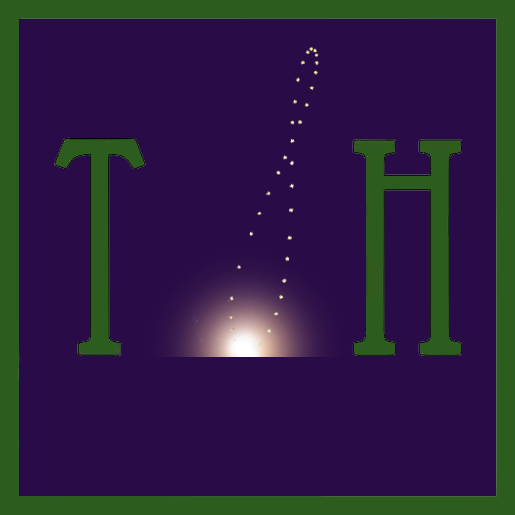TWH – The December solstice will fall on Wednesday, December 21, 2022, at 21:48 UTC (that is 4:48 p.m. Eastern and 1:48 p.m. Pacific in North America). Today, many Pagans, Heathens, and Polytheists in the Northern Hemisphere are marking the Winter Solstice with celebrations, feasts, and rituals. Our friends in the Southern Hemisphere marked the Summer Solstice with equal fervor and merriment.
Like equinoxes, the solstices remind us of the great balance of our world as the sun seemingly moves from the Tropic of Cancer to the Tropic of Capricorn. The annual movement of the sun to and from each tropic forms an analemma, an infinity-shaped loop in the sky.

For the Northern Hemisphere, it is a joyous time of the year, celebrating the cessation of the growing dark and the promise of the returning light.
Yalda Night is an equivalent Persian festival. Today is the beginning of the Dōngzhì Festival (冬至) or Winter’s Extreme in many East Asian cultures.
Some Pagans, especially those honoring Celtic traditions, see the solstices as the biannual battle between the Oak King and the Holly King. The Oak King is at his zenith of power in the north while the Holly King is within his peak in the south.
The ancient Pagan Romans celebrated Saturnalia, which typically ran from Dec. 17 through Dec. 23. The festival honored the god Saturn and featured lavish parties and role reversals. From Saturnalia, we can see the traditions of exchanging gifts and decorating evergreen trees indoors. These were eventually adopted as Christmas traditions.
Following Saturnalia and Kronia, there were birth celebrations honoring Sol Invictus (the Unconquered Sun) on or about December 25. The solstice festivals are believed to have merged to become the festival of Dies Natalis Solis Invicti, the days of the birth of the unconquered sun.
However, new research questions these assessments. The original proposal of these merged festivals came from the History of Religions School’s methods of comparing religions and was mostly favored by German Protestant scholars in the 19th Century, particularly philologist Hermann Usener.
It was Usener who proposed that Christians adopted December 25 as the birth of Jesus to capitalize on the popularity of Sol Invictus. Unfortunately, the sources cited by Usener to support his argument are now shown to be unreliable.
What is clear, however, is that the ancients rejoiced in the returning light and that the astronomical phenomenon of the solstice is undoubtedly the reason for the season.

Solstice celebration in Florida (Photo Credit: S. Ciotti)
In the Southern Hemisphere, it is the time of the Summer Solstice, considered the longest day and shortest night. Those in the Southern hemisphere will honor the wealth of sunshine, many cultures have celebrated with outdoor festivals well into the “night” and building bonfires along with dancing and music as part of both traditional religious rituals and secular celebrations.
In the south, the power of the plentiful light is a reminder to enjoy the moment, for the light begins to wane as we turn to the dark. Similarly, for the north, the solstice is a reminder that despite the darkest night, the light remains unconquered.
From all of us at The Wild Hunt, we thank you again for all your support. Our readers make our work possible through your sharing of our stories, your comments and criticism of the stories, and, of course, your donations (there’s a link at the top of the article if you feel so motivated).
Most of all, we are grateful for your visits and for our community.
Whether it breaks through the deepest dark or at the height of abundant light, may the rising sun bring many blessings to our worldwide community.
Happy Solstice!
At TWH HQ, we are in the northern hemisphere and a mere hundred and fifty miles from the Tropic of Cancer. So, it’s not really cold outside for Yule celebrations, and the day is too short for Midsummer. But we will play some music to enjoy the season. We leave you with a few links to some songs that we enjoy at this time of year.
☀️ ☀️ ☀️
We begin with a “classic,” by Jethro Tull.
Damh the Bard’s ever-popular “Midwinter’s Day.”
Loreena McKennitt’s “Gloucestershire Wassail.”
SJ Tucker sings “Solstice Night.”
Michelle Sarasin debuted “solstice” last year.
Daridel paganfolk released “Yule” in 2020.
From FAUN, “Diese kalt Nacht” [This cold night].
Keith Boegel shared the Galician Carole just a few days ago.
The ever-popular Wiccan Wonderland covered here by Bunny Lo.
Of course, the Southern hemisphere is celebrating Litha, so Vivaldi’s Summer is a beautiful homage to the season.
Sebastián Sánchez-Botta shared Music for Midsummer.
And the Latvian folk group Tautumeitas says we would celebrate the season and reminds us all that we should walk with the witches.
☀️ ☀️ ☀️
The Wild Hunt is not responsible for links to external content.
To join a conversation on this post:
Visit our The Wild Hunt subreddit! Point your favorite browser to https://www.reddit.com/r/The_Wild_Hunt_News/, then click “JOIN”. Make sure to click the bell, too, to be notified of new articles posted to our subreddit.